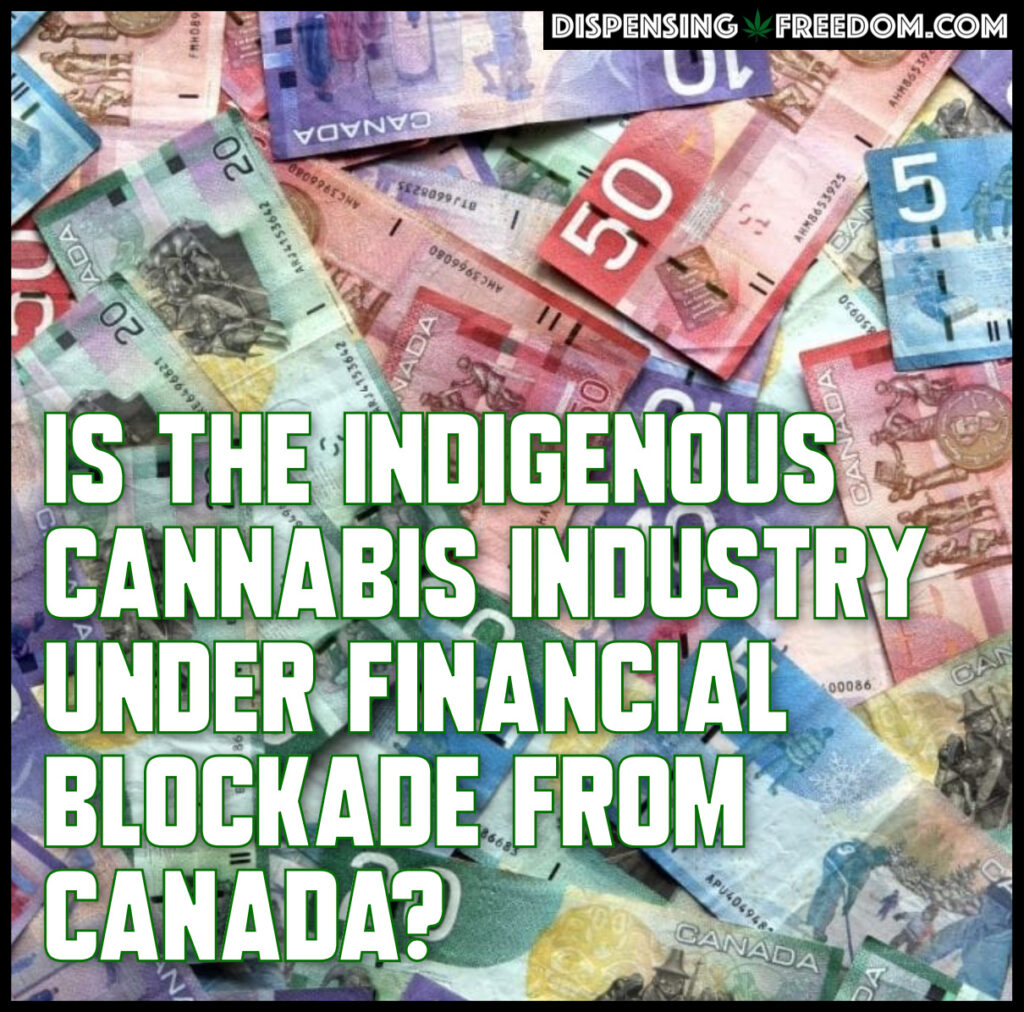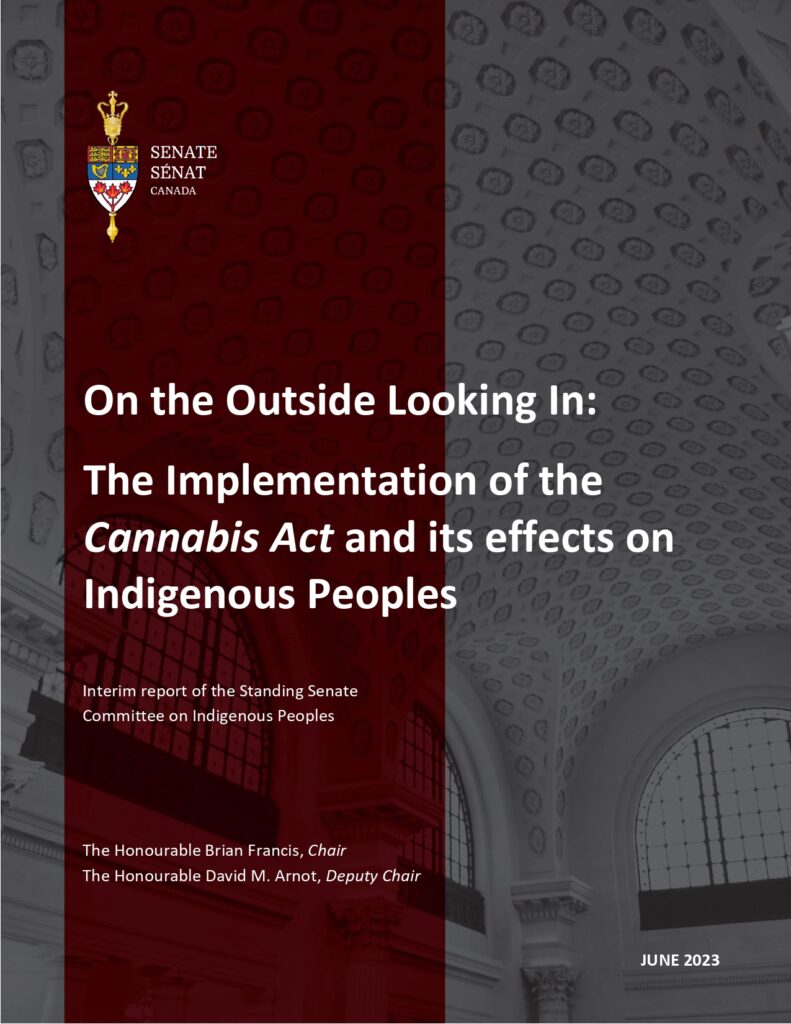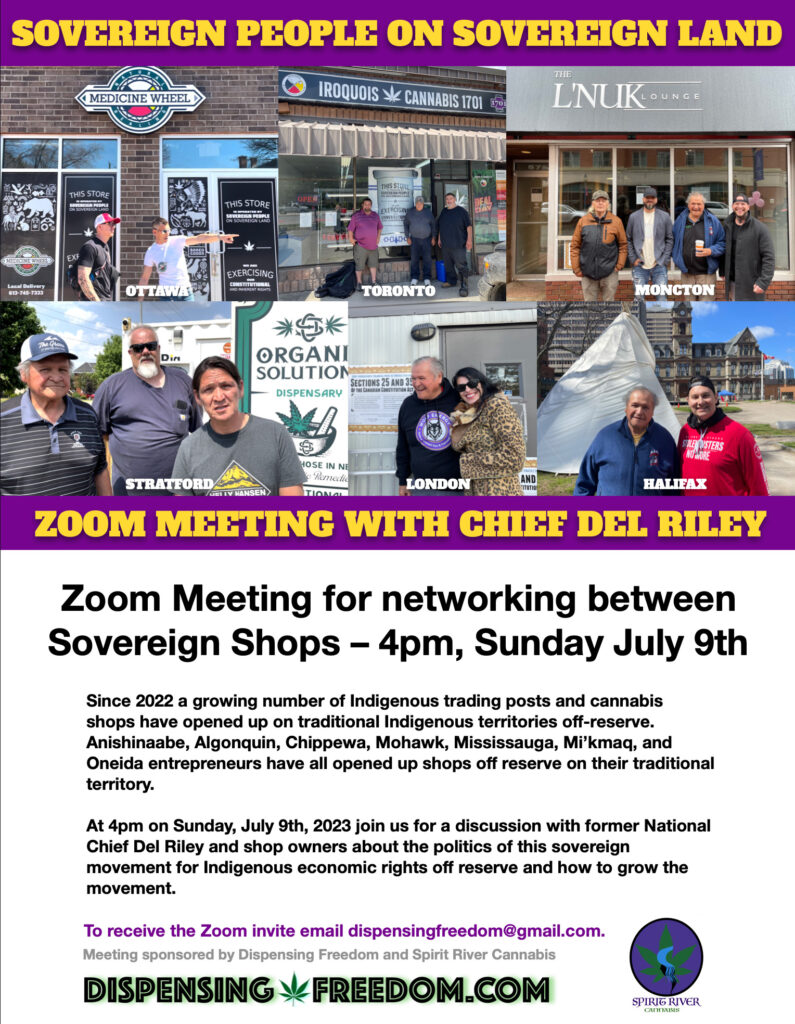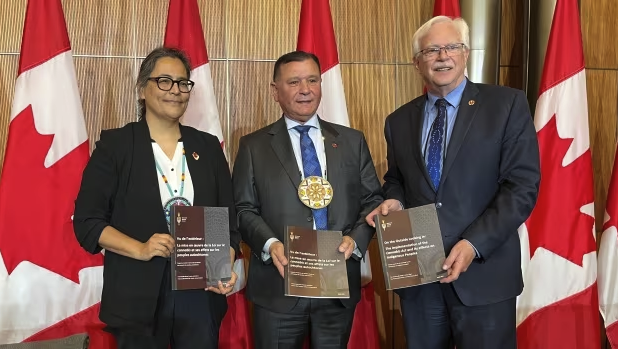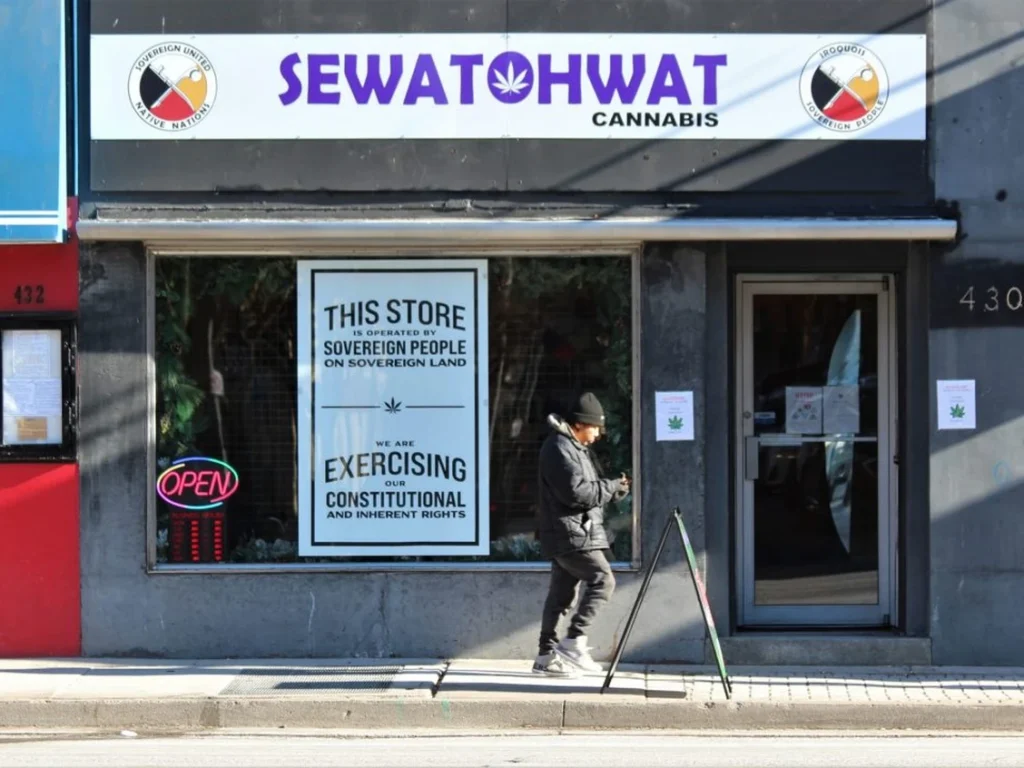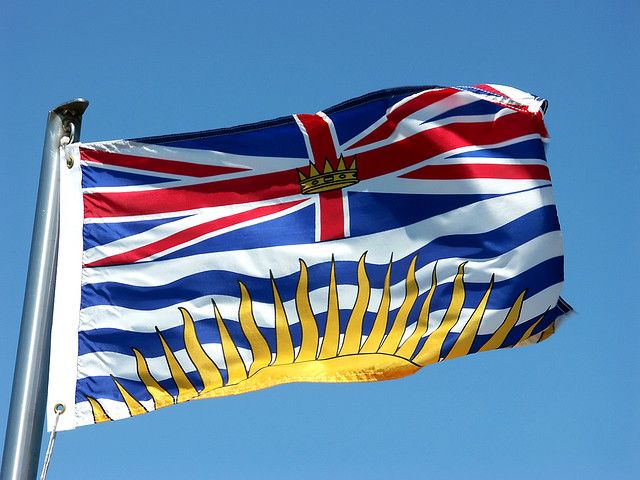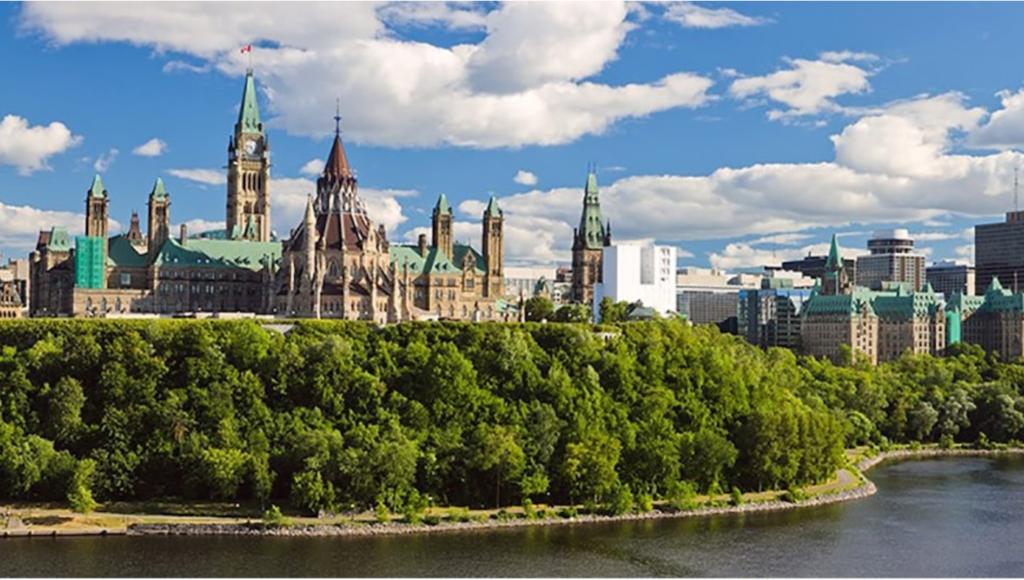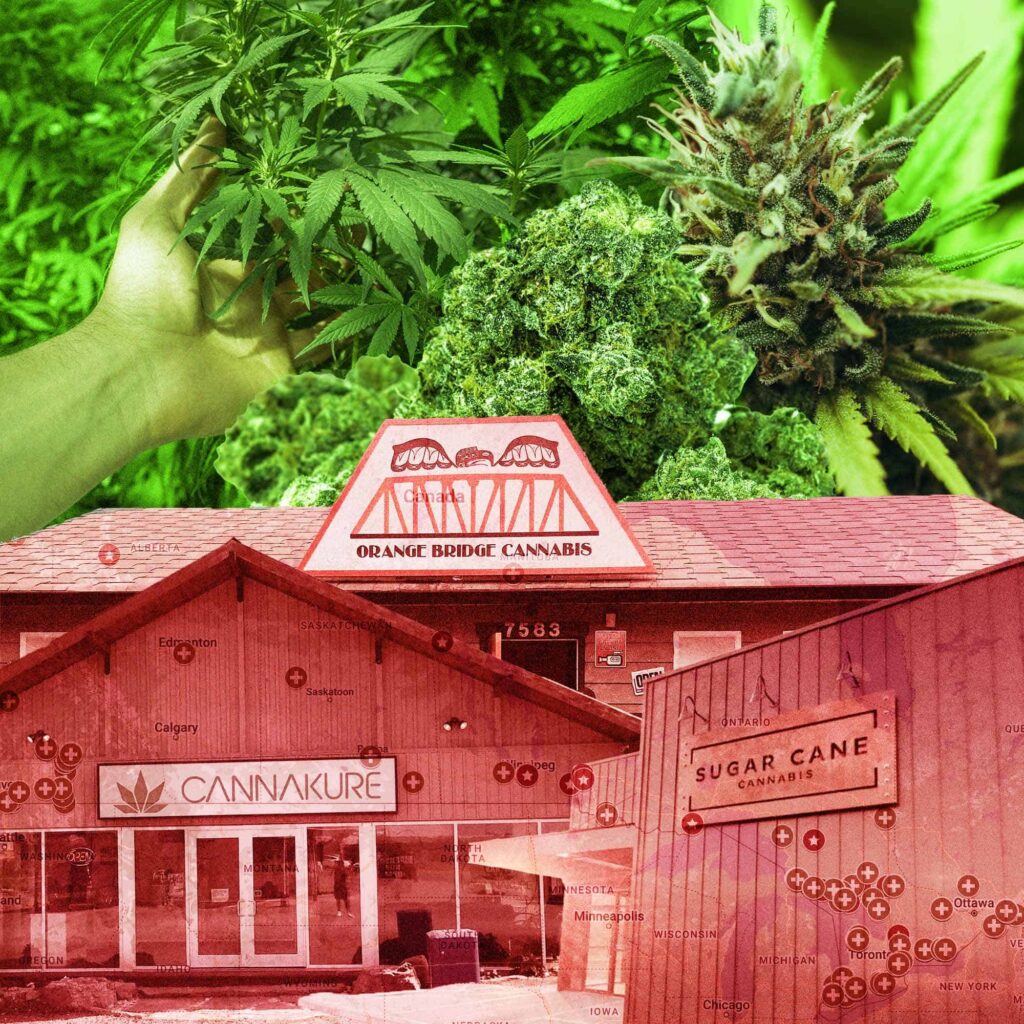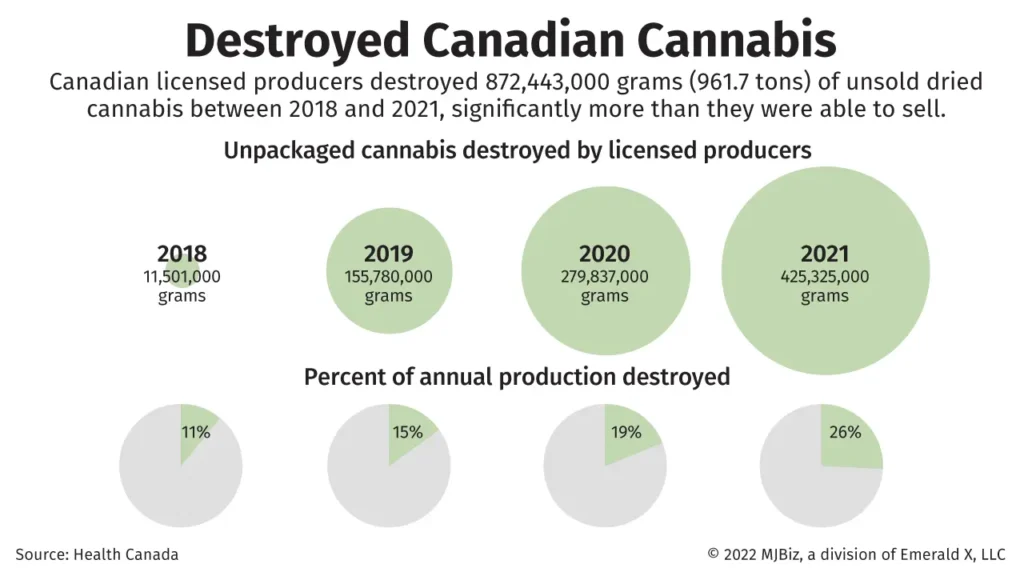While some Indigenous dispensary owners have had their accounts closed for years, there seems to have been a recent uptick in financial actions taken against Indigenous entrepreneurs, almost to the point of an economic embargo. Many of these actions have taken place against individuals living in territories where Band Councils have passed by-laws acknowledging the sovereign right of their residents to cultivate and sell cannabis and where referendums and surveys have shown community support for the cannabis industry.
Posts published in “Canada”
The implementation of the Cannabis Act and its effects on Indigenous Peoples Click below for the complete pdf of the Canadian Senate report.
Since 2022 a growing number of Indigenous trading posts and cannabis shops have opened up on traditional Indigenous territories off-reserve. Anishinaabe, Algonquin, Chippewa, Mohawk, Mississauga, Mi’kmaq, and Oneida entrepreneurs have all opened up shops off reserve on their traditional territory. At 4pm on Sunday, July 9th, 2023 join us for…
Committee chair says situation ‘yet another example of how Indigenous Peoples are being let down by Canada’ Brett Forester – CBC News The federal health minister should amend the 2018 Cannabis Act to recognize First Nations’ right to govern the possession, sale and distribution of cannabis on their lands, a…
From Cannabis Life Network by Caleb McMillan December 23 2022 A second Indigenous unlicensed cannabis retail store has opened in London, Ontario. Sewatohwat Cannabis recently opened without approval from the Alcohol and Gaming Commission of Ontario, the province’s cannabis regulator. “The store is operated by sovereign people on sovereign land,” says a sign on the…
From Yahoo! Finance Canada News Wire December 16 2022 VANCOUVER, COAST SALISH TERRITORY, BC, Dec. 16, 2022 /CNW/ – Today, First Nations partners in British Columbia, alongside Federal and Provincial governments, announced the launch of the B.C. Indigenous Cannabis Business Fund, helping to increase representation in the regulated cannabis industry. This new Indigenous-led…
From Yahoo! Finance via Canada News Wire November 24 2022 OTTAWA, ON, Nov. 24, 2022 /CNW/ – Today, the Honourable Jean-Yves Duclos, Minister of Health, and the Honourable Carolyn Bennett, Minister of Mental Health and Addictions and Associate Minister of Health, announced the members of the Expert Panel on the legislative review of the Cannabis…
The study, mandated by the law that legalized adult-use cannabis in October 2018, will evaluate its impact on the illicit market, indigenous communities, the economy and more. From Cannabis Business Times by Melissa Schiller September 23 2022 The Canadian government announced Sept. 22 that it has launched a review of its 2018…
Excluded from Canada’s marijuana industry, Indigenous entrepreneurs are forging a sovereign market From The Breach by Caitlin Donohue August 4 2022 When Tim Barnhart first opened a cannabis dispensary on Tyendinaga Mohawk territory back in 2015, it was considered a radical act. Legacy 420 was a sovereign shop, promising to empower Indigenous…
From MJBizDaily by Matt Lamers August 3 2022 Canadian licensed producers have destroyed a growing amount of cannabis every year since adult-use legalization nearly four years ago, with 2021’s record quantity far exceeding the product sold that year, an MJBizDaily analysis has found. The latest data signals that some Canadian mass-producers might…

